inviata da DonQuijote82 - 15/10/2011 - 16:43
Lingua: Inglese
Versione inglese di Abdullah Al-Udhari
dal Libretto dell'Album
English version by Abdullah Al-Udhari
from the Album Libretto
dal Libretto dell'Album
English version by Abdullah Al-Udhari
from the Album Libretto
THE DESERT
My era tells me bluntly:
You do not belong.
I answer bluntly:
I do not belong,
I try to understand you.
Now I am a shadow
Lost in the forest
Of a skull
I'm on my feet, the wall is a fence —
The distance shrinks, a window recedes.
Daylight is a thread
Snipped by my lungs to stitch the evening.
All I said about my life and death
Recurs in the silence
Of the stone under my head …
Am I full of contradictions? That is correct.
Now I am a plant. Yesterday, when I was between fire
and water
I was a harvest.
Now I am a rose and live coal,
Now I am the sun and the shadow
I am not a god.
Am I full of contradictions? That is correct …
The moon always wears
A stone helmet
To fight its own shadows.
The door of my house is closed.
Darkness is a blanket:
A pale moon comes with
A handful of light
My words fall
To convey my gratitude.
The killing has changed the city's shape — This rock
is bone
This smoke people breathing.
We no longer meet,
Rejection and exile keep us apart.
The promises are dead, space is dead,
Death alone has become our meeting point.
He shuts the door
Not to trap his joy
… But to free his grief.
A newscast
About a woman in love
Being killed,
About a boy being kidnapped
And a policeman growing into a wall.
Whatever comes it will be old
So take with you anything other than this madness — get ready
To stay a stranger …
They found people in sacks:
One without a head
One without a tongue or hands
One squashed
The rest without names.
Have you gone mad? Please.
Do not write about these things.
You will see
Say his name
Say I painted his face
Stretch your hand to him
Or walk like any man
Or smile
Or say I was once sad
You will see
There is no homeland …
There may come a time when you'll be
Accepted to live deaf and dumb, and perhaps
They'll let you mumble: death,
Life, resurrection —
And peace be upon you.
He wears Jihad uniform, struts in a mantle of ideas.
A merchant — he does not sell clothes, he sells people.
They took him to a ditch and burnt him.
He was not a murderer, he was a boy.
He was not …
He was a voice
Vibrating, scaling the steps of space.
And now he's fluting in the air.
Darkness.
The earth's trees have become tears on heaven's cheeks.
An eclipse in this place.
Death snapped the city's branch and the friends departed.
You do not die because you are created or because you have a body
You die because you are the face of the future.
The flower that tempted the wind to carry its perfume
Died yesterday.
The sun no longer rises
It covers its feet with straw
And slips away …
My era tells me bluntly:
You do not belong.
I answer bluntly:
I do not belong,
I try to understand you.
Now I am a shadow
Lost in the forest
Of a skull
I'm on my feet, the wall is a fence —
The distance shrinks, a window recedes.
Daylight is a thread
Snipped by my lungs to stitch the evening.
All I said about my life and death
Recurs in the silence
Of the stone under my head …
Am I full of contradictions? That is correct.
Now I am a plant. Yesterday, when I was between fire
and water
I was a harvest.
Now I am a rose and live coal,
Now I am the sun and the shadow
I am not a god.
Am I full of contradictions? That is correct …
The moon always wears
A stone helmet
To fight its own shadows.
The door of my house is closed.
Darkness is a blanket:
A pale moon comes with
A handful of light
My words fall
To convey my gratitude.
The killing has changed the city's shape — This rock
is bone
This smoke people breathing.
We no longer meet,
Rejection and exile keep us apart.
The promises are dead, space is dead,
Death alone has become our meeting point.
He shuts the door
Not to trap his joy
… But to free his grief.
A newscast
About a woman in love
Being killed,
About a boy being kidnapped
And a policeman growing into a wall.
Whatever comes it will be old
So take with you anything other than this madness — get ready
To stay a stranger …
They found people in sacks:
One without a head
One without a tongue or hands
One squashed
The rest without names.
Have you gone mad? Please.
Do not write about these things.
You will see
Say his name
Say I painted his face
Stretch your hand to him
Or walk like any man
Or smile
Or say I was once sad
You will see
There is no homeland …
There may come a time when you'll be
Accepted to live deaf and dumb, and perhaps
They'll let you mumble: death,
Life, resurrection —
And peace be upon you.
He wears Jihad uniform, struts in a mantle of ideas.
A merchant — he does not sell clothes, he sells people.
They took him to a ditch and burnt him.
He was not a murderer, he was a boy.
He was not …
He was a voice
Vibrating, scaling the steps of space.
And now he's fluting in the air.
Darkness.
The earth's trees have become tears on heaven's cheeks.
An eclipse in this place.
Death snapped the city's branch and the friends departed.
You do not die because you are created or because you have a body
You die because you are the face of the future.
The flower that tempted the wind to carry its perfume
Died yesterday.
The sun no longer rises
It covers its feet with straw
And slips away …
inviata da DonQuijote82 + CCG/AWS Staff - 6/11/2011 - 22:09
Lingua: Italiano
Versione italiana di Riccardo Venturi
(Dalla versione inglese)
7/8 novembre 2011
(Dalla versione inglese)
7/8 novembre 2011
IL DESERTO
La mia epoca mi dice francamente:
Tu non hai appartenenza.
Io rispondo francamente:
Non ho appartenenza.
Cerco di capirti.
Ora sono un'ombra
Perduta nella foresta
Di un teschio
Sto sui miei piedi, il muro è una barriera -
La distanza si riduce, una finestra si allontana.
La luce del giorno è un filo che faccio
A pezzetti coi polmoni per suturare la sera.
Tutto ciò che ho detto della mia vita e della mia morte
Si ripete nel silenzio
Della pietra che ho sotto la testa...
Sono pieno di contraddizioni? È vero.
Ora sono una pianta. Ieri, quand'ero tra l'acqua
E il fuoco
Ero un raccolto.
Ora sono una rosa e carbone attivo,
Ora sono il sole e l'ombra
Non sono un dio.
Sono pieno di contraddizioni? È vero...
La luna porta sempre
Un elmo di pietra
Per combattere le proprie ombre.
La mia porta di casa è chiusa.
Il buio è una coperta:
Una pallida luna arriva
Con una manciata di luce
Le parole mi cadono
Portando la mia gratitudine
Uccidere ha cambiato aspetto alla città – Questa roccia
È pietra,
Questo fumo, gente che respira.
Non ci incontriamo più,
Il rifiuto e l'esilio ci tengono separati.
Le promesse sono morte, lo spazio è morto,
Solo la morte è diventata il nostro punto d'incontro.
Chiude la porta
Non per rinchiudere la gioia
...ma per liberare la sua pena.
Un lancio di notizie
Su una donna innamorata
Che viene uccisa,
Su un ragazzo rapito,
Su un poliziotto che diventa un muro.
Qualunque cosa avvenga, diventerà vecchia.
E, allora, prenditi qualsiasi altra cosa diversa da questa follia
E sii pronto a restare straniero...
Hanno trovato persone in dei sacchi:
Una decapitata,
Una senza la lingua e le mani
Una ridotta in poltiglia
E tutte le altre senza nome.
Siete impazziti? Vi prego,
Non scrivete di queste cose.
Vedrete
Dite il suo nome
Dite che ho dipinto la sua faccia
Porgetegli la mano
O camminate come chiunque
O sorridete
O dire che una volta ero felice
Vedrete
Non esiste patria...
Può darsi che verrà un tempo in cui
Accetteranno che viviate sordomuti, e forse
Vi faranno mormorare: morte,
Vita, resurrezione
E pace siano con voi.
Porta l'uniforme da Jihad, cammina impettito
Con addosso un mantello di idee.
Un mercante: non vende abiti, vende persone.
Lo hanno portato in un fusso e bruciato.
Non era un assassino, era un ragazzo.
Non era...
Era una voce
Che vibrava e scandiva i passi dello spazio.
E ora parla dolcemente nell'aria.
Tenebre.
Gli alberi della terra ora sono lacrime sulle guance del cielo.
Qui c'è un'eclisse.
La morte ha divelto il ramo della città e gli amici sono andati via.
Il fiore che ha indotto in tentazione il vento
A portare il suo profumo
È morto ieri.
Il sole non sorge più,
Si copre i piedi di paglia
E scivola via...
La mia epoca mi dice francamente:
Tu non hai appartenenza.
Io rispondo francamente:
Non ho appartenenza.
Cerco di capirti.
Ora sono un'ombra
Perduta nella foresta
Di un teschio
Sto sui miei piedi, il muro è una barriera -
La distanza si riduce, una finestra si allontana.
La luce del giorno è un filo che faccio
A pezzetti coi polmoni per suturare la sera.
Tutto ciò che ho detto della mia vita e della mia morte
Si ripete nel silenzio
Della pietra che ho sotto la testa...
Sono pieno di contraddizioni? È vero.
Ora sono una pianta. Ieri, quand'ero tra l'acqua
E il fuoco
Ero un raccolto.
Ora sono una rosa e carbone attivo,
Ora sono il sole e l'ombra
Non sono un dio.
Sono pieno di contraddizioni? È vero...
La luna porta sempre
Un elmo di pietra
Per combattere le proprie ombre.
La mia porta di casa è chiusa.
Il buio è una coperta:
Una pallida luna arriva
Con una manciata di luce
Le parole mi cadono
Portando la mia gratitudine
Uccidere ha cambiato aspetto alla città – Questa roccia
È pietra,
Questo fumo, gente che respira.
Non ci incontriamo più,
Il rifiuto e l'esilio ci tengono separati.
Le promesse sono morte, lo spazio è morto,
Solo la morte è diventata il nostro punto d'incontro.
Chiude la porta
Non per rinchiudere la gioia
...ma per liberare la sua pena.
Un lancio di notizie
Su una donna innamorata
Che viene uccisa,
Su un ragazzo rapito,
Su un poliziotto che diventa un muro.
Qualunque cosa avvenga, diventerà vecchia.
E, allora, prenditi qualsiasi altra cosa diversa da questa follia
E sii pronto a restare straniero...
Hanno trovato persone in dei sacchi:
Una decapitata,
Una senza la lingua e le mani
Una ridotta in poltiglia
E tutte le altre senza nome.
Siete impazziti? Vi prego,
Non scrivete di queste cose.
Vedrete
Dite il suo nome
Dite che ho dipinto la sua faccia
Porgetegli la mano
O camminate come chiunque
O sorridete
O dire che una volta ero felice
Vedrete
Non esiste patria...
Può darsi che verrà un tempo in cui
Accetteranno che viviate sordomuti, e forse
Vi faranno mormorare: morte,
Vita, resurrezione
E pace siano con voi.
Porta l'uniforme da Jihad, cammina impettito
Con addosso un mantello di idee.
Un mercante: non vende abiti, vende persone.
Lo hanno portato in un fusso e bruciato.
Non era un assassino, era un ragazzo.
Non era...
Era una voce
Che vibrava e scandiva i passi dello spazio.
E ora parla dolcemente nell'aria.
Tenebre.
Gli alberi della terra ora sono lacrime sulle guance del cielo.
Qui c'è un'eclisse.
La morte ha divelto il ramo della città e gli amici sono andati via.
Il fiore che ha indotto in tentazione il vento
A portare il suo profumo
È morto ieri.
Il sole non sorge più,
Si copre i piedi di paglia
E scivola via...
×
![]()

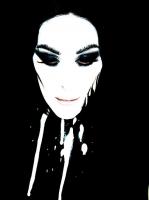

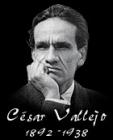




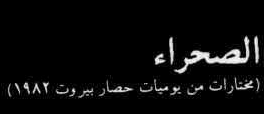
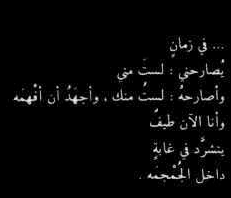
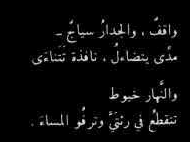

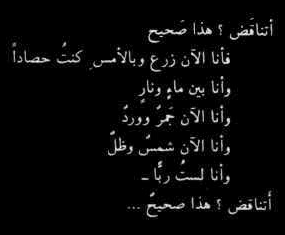
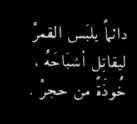
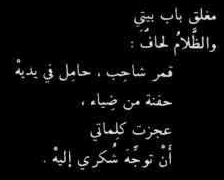
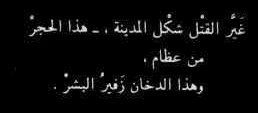
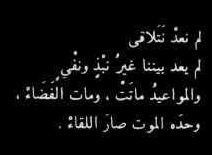

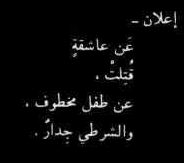
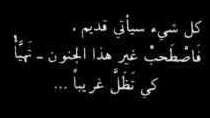
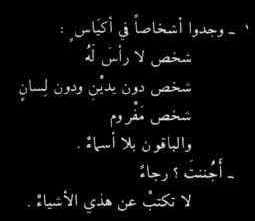
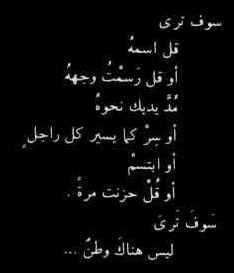
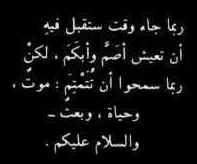

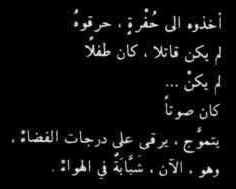
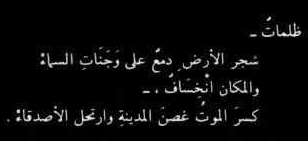
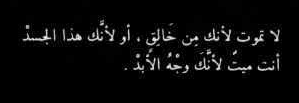

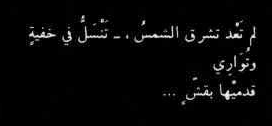
Poesia di Adonis [أدونيس] (Alī Ahmad Sa'īd Isbir / علي أحمد سعيد إسبر)
Da Diario di Beirut sotto assedio, strofe 1-20
Musica di Diamanda Galás
The Diary Of Beirut Under Siege [1982, Verses 1-20]
by Adonis [أدونيس] (Alī Ahmad Sa'īd Isbir / علي أحمد سعيد إسبر)
Music by Diamanda Galás
Album: Defixiones Will and Testament
Defixiones refers to the warnings engraved in lead which were placed on the graves of the dead in Greece and Asia Minor. They cautioned against moving or desecrating the corpses under threat of extreme harm.
Will and Testament refers to the last wishes of the dead who have been taken to their graves under unnatural circumstances.
The concert material that Galás has included in this song cycle includes music set to the texts of the Armenian poet/soldier Siamanto; the Belgian/French poet Henri Michaux; the Syrian/Lebanese poet Adonis; the rembetika songs of Sotiria Bellou; the Anatolian Greek Amanedhes; the blues music of the American musicians Boise Sturdevant and Blind Lemon Jefferson, and the sacred songs of the Deep South. A new addition to the song cycle is a striking piece written by Galás called "The World Has Gone Up In Flames", which premiered at Royce Hall (UCLA) November 2001. Galás warns that, even in death, those that were chosen to die have not been defeated nor are they forgotten. "My death is written in a rock that cannot be broken."
Defixiones, Will and Testament is dedicated to the forgotten and erased of the Armenian, Assyrian, and Anatolian Greek genocides which occurred between 1914 and 1923.
Defixiones si riferisce alle placche in piombo che erano sistemate sulle tombe dei morti in Grecia e in Asia Minore. Avvertivano di non spostare o profanare le salme, con la minaccia di conseguenze assai sgradevoli.
Will and Testament si riferisce alle ultime volontà dei defunti, che erano finiti nella tomba per circostanze non naturali.
Il materiale concertuale che Diamanda Galás ha inserito in questo ciclo di canzoni comprende testi del poeta militante armeno Siamanto, del poeta belga di lingua francese Henri Michaux, del poeta assiro libanese Adonis, le canzoni rebetika di Sotiria Bellou e del greco anatolico Amanedhes, i blues dei musicisti americani Boise Sturdevant e Blind Lemon Jefferson, e le canzoni sacre del Profondo Sud. Un'ulteriore aggiunta al ciclo di canzoni è rappresentata da un impressionante brano scritto dalla Galás stessa, intitolato The World Has Gone Up In Flames, eseguito per la prima volta alla Royce Hall dell'UCLA nel novembre 2001. Diamanda Galás avverte che, persino nella morte, coloro che vi erano stati costretti non sono stati né sconfitti, né dimenticati. “La mia morte è scritta su una roccia che non può essere spezzata”.
Defixiones, Will and Testament è dedicato alle vittime, dimenticate e cancellate, dei genocidi armeno, assiro e greco-anatolico che ebbero luogo tra il 1914 e il 1923.
"Defixiones Will and Testament" è incentrato sul genocidio armeno, anatolico e greco che ebbe luogo, per la maggior parte, con il pretesto della Prima guerra mondiale (1914-1917). L'Impero Ottomano, ora Repubblica Turca, usò vari mezzi di distruzione per mettere in pratica una politica di pulizia etnica. Lo scopo non era soltanto quello di uccidere, ma di cancellare ogni traccia culturale dell'esistenza di questi popoli.
"Defixiones, Will and Testament" se centre sur le génocide armenien, anatolique et grec qui a eu lieu, pour la plupart, sous le prétexte de la Première guerre mondiale (1914-1917). L'Empire Ottoman, à présent République de Turquie, a employé de nombreux moyens de destruction pour mettre en acte une politique de nettoyage éthnique. Le but n'était pas seulement de tuer, mais d'effacer et anéantir toute trace de l'existence même de ces peuples.
THE DANCE:
1. The Dance [Պարը] - Ter Vogormia [Տէր Ողորմյա]
2. The Desert [الصحراء] Part I
3. The Desert [الصحراء] Part II
4. Sevda zinciri
5. Holokaftoma [Ολοκαύτωμα; Holocaust, Olocausto]
6. Ter Vogormia [Տէր Ողորմյա] (reprise)
7. The Eagle Of Tkhuma [ݎܸܫܒ݅ܐ ܒܼܬܚܗܼܡܹܐ]
8. The Orders From the Dead
DISC B
SONGS OF EXILE:
1. Hastayım yaşıyorum
2. Σαν πεθάνω στο καράβι
3. Je rame
4. Epístola a los transeúntes
5. Birds Of Death
6. Άνοιξε, άνοιξε
7. Todesfuge
8. Artémis
9. See That My Grave Is Kept Clean
Adonis o Adunis (arabo: أدونيس), pseudonimo di Alī Ahmad Sa'īd Isbir (in arabo: علي أحمد سعيد إسبر; traslitterato in alî Ahmadi Sa'îdi Asbar o Ali Ahmad Sa'id; Qassabīn, 1º gennaio 1930) è un poeta e saggista libanese di origine siriana.
Studia dapprima all'Università di Damasco e poi all'Università Saint Joseph di Beirut. Nel 1957 pubblica la prima raccolta poetica che viene accolta con favore e che gli vale la stima del poeta libanese Yūsuf al-Khāl (sotto lo pseudonimo di Unsi al-Hajj) il quale lo invita a contribuire alla nascita della rivista Shiʿr (Poesia).
Adonis è stato attivissimo nel dibattito politico-culturale, estetico e filosofico. Insieme al poeta iracheno al-Sayyāb e al palestinese Ğabrā Ibrāhīm Ğabrā è tra i fondatori del gruppo Tammuzi, dal nome della divinità babilonese, appunto per simboleggiare la volontà di una rinascita culturale araba, rileggendone il patrimonio (sia quello islamico che quello del Vicino Oriente antico) in una chiave non nazionalistica o religiosa, ma di apertura alla modernità. In quest'ambito si pone, per l'approccio innovativo, anche l'antologia della poesia classica araba curata dallo stesso Adonis.
Gli anni sessanta sono anche quelli di importanti opere poetiche - tra cui i Canti di Mihyār il damasceno (1961), scritto dopo un lungo soggiorno parigino e Il teatro e gli specchi (1968) - e della fondazione di nuove riviste quali Afāq (Orizzonti) nel 1964 e Mawāqif (Posizioni) nel 1968 in cui vengono ospitate sperimentazioni poetiche, poesie in arabo dialettale, traduzioni dalle maggiori esperienze poetiche contemporanee (Rilke, Rimbaud, Eliot) e poemi in prosa.
L'opera di Adonis è stata tradotta in molte lingue. Tra le più significative raccolte poetiche si segnalano: Qālat al-Ard (1952; Disse la terra), Aghānī Mihyār ad-Dīmashqi, (1961; I canti di Mihyār al-Dimashqi), Qabr min ajal New York (1971; Una tomba per New York), Kitāb al-Hisār (1986; Il libro dell'assedio), Introduzione alla poetica araba (1992), Poesie (1993), Sijjil (2000), Mūsīqā al-hūt al-azraq (2005; La musica della balena azzurra), Al-Muhīt al-aswad (2006), L'oceano nero.
In Italia gli è stato assegnato nel 1999 il Premio Nonino per la poesia. Nel 2000 gli è conferito il Premio LericiPea per l'Opera Poetica. È stato più volte candidato al Premio Nobel per la letteratura. (it:wikipedia)
Ali Ahmad Said Asbar (Arabic: علي أحمد سعيد إسبر; transliterated: alî ahmadi sa'îdi asbar or Ali Ahmad Sa'id) born 1 January 1930, also known by the pseudonym Adonis or Adunis (Arabic: أدونيس), is a Syrian poet and essayist who has made his career largely in Lebanon and France. He has written more than twenty books in Arabic language.
Adonis was born in Al Qassabin, Latakia, in Northern Syria, to an Alawite family. From an early age, he worked in the fields, but his father regularly had him memorize poetry, and he began to compose poems of his own. In 1947, he had the opportunity to recite a poem for Syrian president Shukri al-Kuwatli; that led to a series of scholarships, first to a school in Latakia and then to the Syrian University in Damascus, where he received a degree in Philosophy in 1954.
The name Adonis was not given to Said by Antun Saadeh, the leader of the radical pan-Syrian Syrian Social Nationalist Party, as some believe. Rather, he picked it himself after being rejected by a number of magazines under his real name. In 1955, Said was imprisoned for six months for being a member of that party. Following his release from prison in 1956, he settled in Beirut, Lebanon, where in 1957 he and Syro-Lebanese poet Yusuf al-Khal founded the magazine Majallat Shi'r ("Poetry Magazine") that met with strong criticism as they published experimental poetry. Majallat Shi’r ceased publication in 1964, and Adonis did not rejoin the Shi’r editors when they resumed publication in 1967. In Lebanon, his intense nationalistic feelings, reflecting pan-Arabism focused on the Arab peoples as a nation, found their outlet in the Beiruti newspaper Lisan al-Hal and eventually in his founding of another literary periodical in 1968 titled Mawaqif, in which he again published experimental poetry. Adonis's poems continued to express the poet’s nationalistic views combined with his mystical outlook. With his use of Sufi terms (the technical meanings of which were implied rather than explicit), Adonis became a leading exponent of the Neo-Sufi trend in modern Arabic poetry. This trend took hold in the 1970s.
Adonis received a scholarship to study in Paris from 1960-1961. From 1970 to 1985 he was professor of Arabic literature at the Lebanese University. In 1976, he was a visiting professor at the University of Damascus. In 1980, he emigrated to Paris to escape the Lebanese Civil War. In 1980-1981, he was professor of Arabic at the Sorbonne in Paris. (en:wikipedia)